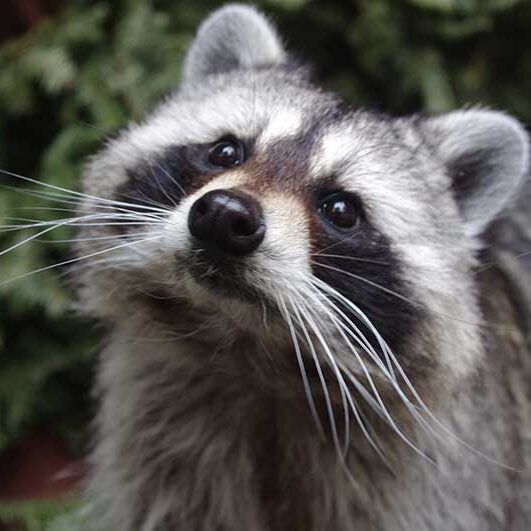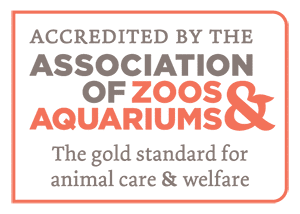Animals
North American Raccoon

LATIN NAME
Procyon lotor
RACCOON HISTORY AT CURIODYSSEY
Our female raccoon was found under someone’s porch and hand-fed and handled by the residents. She was eventually given to the Chattanooga Zoo in Tennessee and was deemed unreleasable because she was habituated to humans, and came to CuriOdyssey in 2013. The two male raccoons were both captive-born at the Audubon Zoo in Louisiana.
BIRTH DATE
The female raccoon was born in 2013. Both males were born in 2014.
FUN FACTS ABOUT RACCOONS
Although their Latin name lotor means “one who washes”, raccoons do not actually wash their food. Raccoons have a heightened sense of touch. In the wild, they will rub, feel, and dunk, using their highly dexterous and sensitive front paws in order to locate and capture aquatic prey.
WHAT DO RACCOONS EAT?
In the wild, North American Raccoons eat eggs, berries, fruit, acorns, seeds, crustaceans, and insects. They will also occasionally prey on small vertebrates like rodents, small birds, and baby rabbits.
At CuriOdyssey, our North American Raccoons enjoy dog kibble, mice, rats, beef, rabbit, chick, quail, insects, bones, hard-boiled egg, fruits, and vegetables.
HOW LONG DO RACCOONS LIVE?
In the wild North American Raccoons live up to six years. In captivity life-span range from 10 to 13 years.
In Captivity: average is 10-15 years, oldest recorded was 19 years.
WHERE DO RACCOONS LIVE?
North American Raccoons are found almost everywhere. They prefer damp areas like parks, farmland, cities, and suburbs. They like large tree cavities for dens.
They range in North America from southern Canada to Panama.
ARE RACCOONS ENDANGERED?
As of this moment, North American Raccoons have no special wildlife conversation status. Raccoon hunting is prevalent during September-December each year, especially in eastern North America. High fur prices ($25-$50 each) during the 1970’s intensified the interest in hunting and trapping raccoons. Nighttime hunting with specially bred hounds has a long tradition, second only, perhaps, to that of English fox hunting. Over four million raccoons are harvested annually this way or by trapping, and many others die each year on roads.
SPONSOR AN ANIMAL
Help provide for the care and feeding of our wildlife guests by sponsoring an animal of your choice for a year.
Join the CuriOdyssey Community
LOCATION
1651 Coyote Point Drive
San Mateo, CA 94401
Ohlone Land Acknowledgement
650-342-7755
info@curiodyssey.org
CuriOdyssey is a 501(c)(3) non-profit, Tax ID 94-1262434

